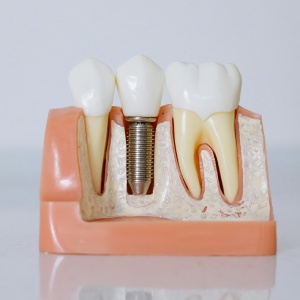
Missing teeth not only impact your smile but also affect your oral health. Fortunately, dental implants provide a durable, natural-looking solution for tooth replacement.
In our previous blog, we discussed the five key signs that indicate you might need dental implants. Now, let's explore the step-by-step process of getting dental implants and how they can restore your smile.
Most individuals with good oral health and adequate jawbone density are ideal candidates for dental implants. However, certain conditions-such as gum disease, smoking, or medical concerns-may affect healing and require additional treatment. A consultation with a family dentist in Yorba Linda can help determine the best approach for your specific needs.
If you're considering dental implants, here's a breakdown of the five essential steps in the process.
The first step is a thorough evaluation by a dentist in Yorba Linda to determine your eligibility for implants. This process includes:
A full examination of your teeth and gums
Advanced imaging, such as X-rays or 3D scans, to assess bone density
Reviewing your medical history and lifestyle factors
Discussing potential preparatory procedures, such as bone grafting, if needed
Since jawbone density is crucial for implant success, a bone graft may be required if bone loss is detected.
Once cleared for the procedure, the implant is surgically placed into the jawbone. The process involves:
Numbing the treatment area with local anesthesia
Making a small incision in the gums
Drilling a space in the jawbone for implant placement
Securing the titanium post into position
Closing the gums with sutures for proper healing
For patient comfort, sedation options may be available based on individual needs.
During the next few months, a process called osseointegration occurs, where the implant fuses with the jawbone. This step is essential for ensuring stability and long-term durability. Maintaining good oral hygiene and following aftercare instructions will support proper healing and implant success.
Once the implant has fully integrated with the jawbone, an abutment is attached to connect the implant to the final restoration. This step includes:
Making a small incision to expose the implant
Attaching the abutment
Allowing the gum tissue to heal before placing the crown
The abutment ensures a secure foundation for the artificial tooth.
The final step is placing the custom-made crown, bridge, or denture. This process involves:
Taking impressions to design a restoration that blends seamlessly with natural teeth
Ensuring a comfortable and functional fit
Securing the artificial tooth to the abutment
Once completed, the implant will look, feel, and function just like a natural tooth.
Dental implants in Yorba Linda provide a long-term, reliable solution for missing teeth, restoring both function and aesthetics. By understanding the implant process, you can take a confident step toward improving your oral health. If you're considering dental implants, consult a trusted dentist to explore your options.
Ready to restore your smile? Contact Dr. Bruce M. Rogers and his experienced team at 714-386-1331 to schedule a consultation. They'll guide you through your treatment options and help you achieve a healthy, confident smile.